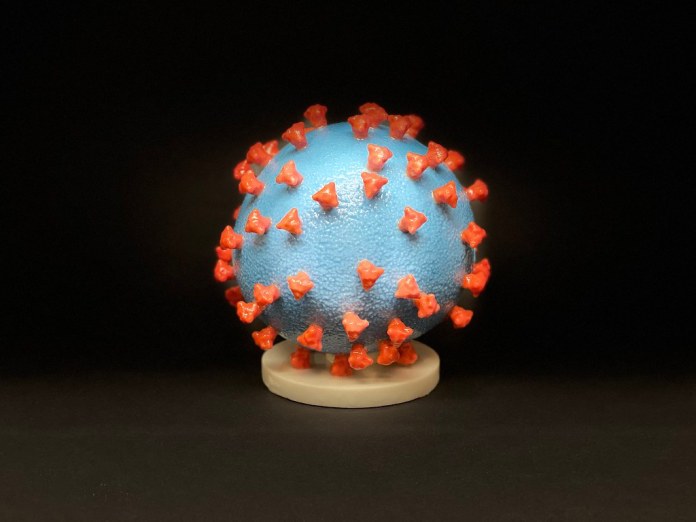California State University, Monterey Bay (CSUMB) hosted a forum to discuss the relationship between COVID-19 and Monterey County’s Black community on Feb. 1. The panel featured various local leaders and health officials.
Dr. Vanessa Lopez Littleton facilitated the event and introduced CSUMB alumnus, poet and COVID-19 survivor Christopher Siders. Siders was hospitalized due to the virus and suffered severe symptoms.
“I’m not even supposed to be here today,” Siders said.
Siders gave a heartfelt opening by reciting performance poetry, in which he called out an impassioned plea for the humanity of the Black community.
Mayor Ian Oglesby of Seaside then spoke, acknowledging the importance of transparency surrounding the COVID-19 vaccine. Oglesby urged people within the community who are “comfortable with the science to do our part to ease other’s concerns.”
Oglesby emphasized the importance of having difficult conversations to help inform other community members of the facts and importance of accepting mRNA vaccines.
The next speaker, Director of Health for Monterey County Elsa Mendoza Jimenez stated “it’s important to lead with race when we talk about COVID.”
The socio-political and economic ramifications of racial disparity with regards to the illness, discrimination from the medical system, access to adequate health care, housing and wealth gaps are all factors that play a part in the disproportionately higher case counts of Black, Indigenous and people of color (BIPOC).
BIPOC communities make up 49.95% of COVID-19 affected households in Salinas. Mendoza Jimenez discussed that COVID-19 is rampant in congregate living centers and the importance of receiving the COVID-19 vaccination.
As of Feb. 1, Monterey County has requested 43,375 doses. Up to 29,850 doses have been received and 16,428 have been administered. The County needs 514,000 doses in order to achieve herd immunity. At this rate, the allocation of county vaccines is insufficient to reach herd immunity in less than 23 months.
Speaker Dr. Sameer Bahkda from the community hospital of the Monterey Peninsula was clear-cut about things he’s been witnessing in the emergency medicine department.
“We’re seeing sick,” Bahkda said. “This is a heck of a lot worse than a bad flu.”
Bahkda noted that COVID-19 tends to affect “hardworking, blue-collar folks,” who live in multi-generational households.
Bahkda explained that people experiencing COVID-19 are most contagious in the two days prior to the onset of symptoms and five days after onset. There is no biological predisposition to contracting COVID-19. The predisposition comes from the socio-political and economic challenges instituted by the various discriminatory systems in place.
Discussing the distrust of science and the government’s role in creating and distributing the vaccine, the panel explored various harmful and racist exploitation by the medical community, including evidence presented in the Tuskegee Experiment, as well as the theft of Henrietta Lacks’ tissue and subsequent exploitation of her samples.
It’s important to note that race is not the risk factor- racism is. There is a need for care providers in the community to reflect the identities of the people they serve. Speaker and Vice Mayor of Monterey Tyller Williamson emphasized the need for a community-based perspective. Williamson drew attention to work being done in the Peninsula.
Executive Director of The Village Project, INC (TVPI) Melvin Mason also joined the forum. He is partnering with pastors of historically Black churches and is working to have those churches certified as vaccine distribution centers. TVPI works to “meet the needs of the underserved African American communities,” Mason said.
The question and answer portion of the forum provided useful and insightful information. It was addressed that the South African variant of COVID-19 has a higher rate of transmissibility and re-contagion.
Bahkda advised people who have contracted COVID-19 to still get the vaccine, since vaccines are the best protection against the spread of variants. No matter the brand of the vaccine, the crucial and responsible step for community members is doing their part and receiving both dosages. However, Bahkda notes that regardless of brand, once administered, both doses need to be of the same vaccine.
Currently there is a Monterey Peninsula pediatric group assisting in the vaccine distribution of those who qualify under the current phase. Information for this can be found at ryanranchvaccines.com. People with pre-existing conditions should get the vaccine, as they are more susceptible to severe symptoms of COVID-19.
The panelists clarified that the vaccine does not contain COVID-19 and that one cannot contract the virus from being vaccinated. All in all, this forum emphasized the importance of building and restoring trust in the medical community and how we can each do our part to begin the process.

